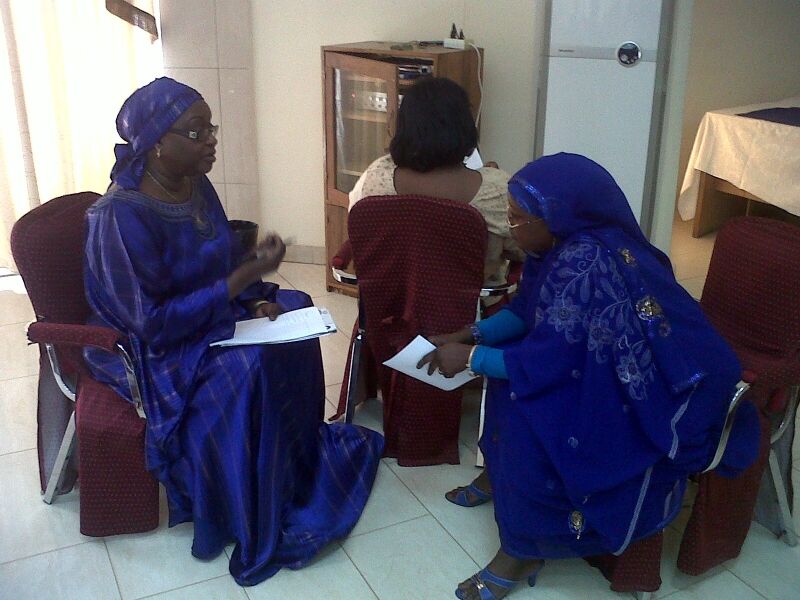

DECP supports women entrepreneurs in West Africa
Last year DECP supported 2 workshops specifically developed by ILO-ITC for women employers’ organisations and their members, one in Bangkok and one in Johannesburg. Both workshops were highly valued by the participants. So when women employers’ organisations from West Africa appealed to ILO-ITC and DECP to organise a similar workshop, we responded positively.
Thus, from 18 till 21 March 14 representatives from women employers’ associations in 8 West African countries gathered in Ouagadougou (Burkina Faso) for a close examination of the specific obstacles encountered by women entrepreneurs as well as an in-depth discussion of possible ways and means to overcome those obstacles. In a free and lively exchange they identified a number of legal constraints, in particular in the area of getting credit (access to finance) and also with regard to buying and registering property. But there are also social and cultural obstacles which have an impact on the educational opportunities for women. All too often women are relegated to running small businesses mostly in the informal sector.
Apart from the legal constraints, participants pointed to impediments such as the ineffectiveness of business support organisations, the underdeveloped market for services, limited access to markets, ignorance of marketing techniques and obscure fiscal regulations, in particular regarding cross-border trade.
From their discussions a clear consensus emerged: women entrepreneurs do not ask for special privileges, favouritism or quotas. They rather prefer to be taken seriously as entrepreneurs and get full access to the business support instruments and initiatives which are being set up in the various countries (such as business development centres, guarantee schemes, tax facilities, public-private partnerships, etc.).
In conclusion and encouragingly, the apex employers’ organisations present at the workshop signalled their commitment to strengthen their cooperation with the associations of women entrepreneurs, to increase their lobbying efforts for equitable treatment for women entrepreneurs, to provide coaching for their companies as well as further develop the type of services specifically tailored to the needs of women entrepreneurs.